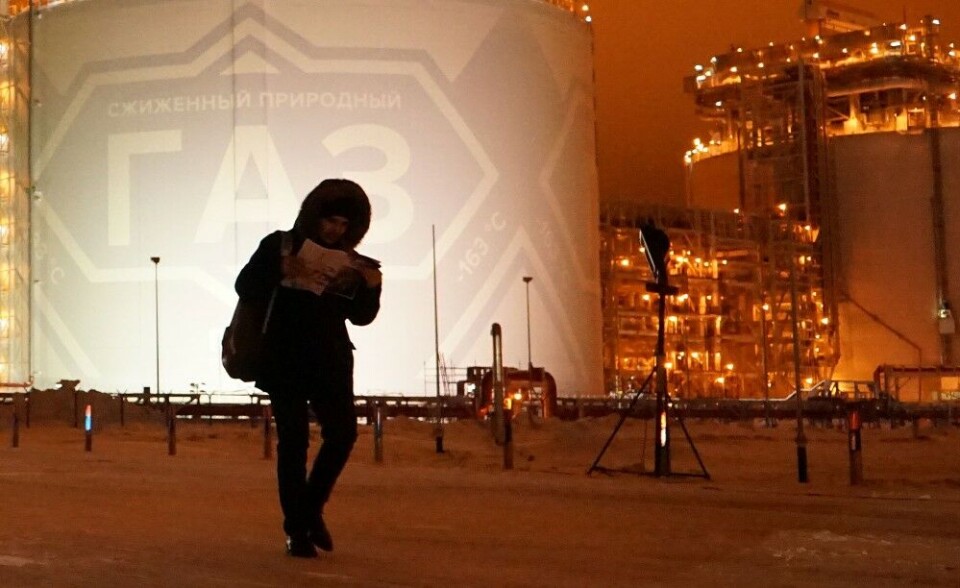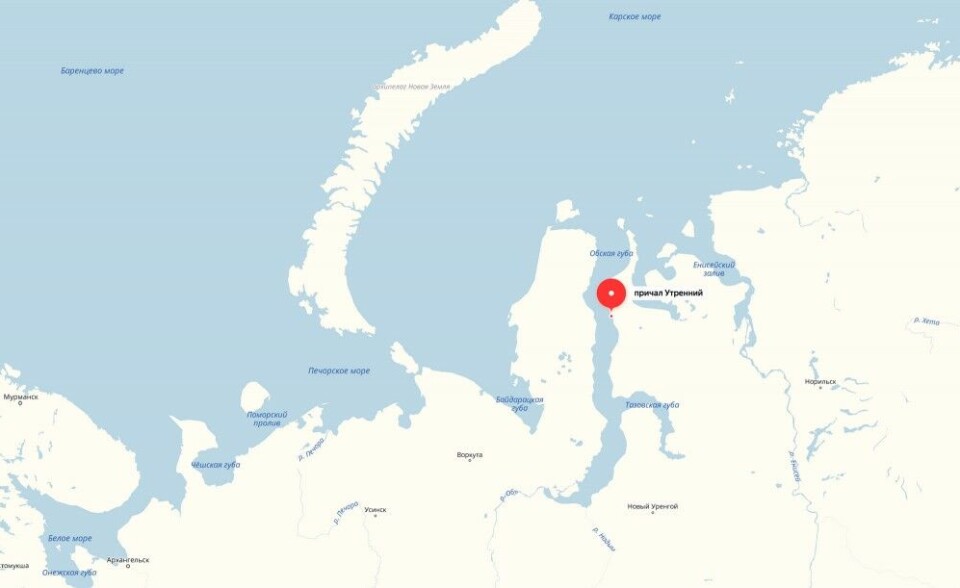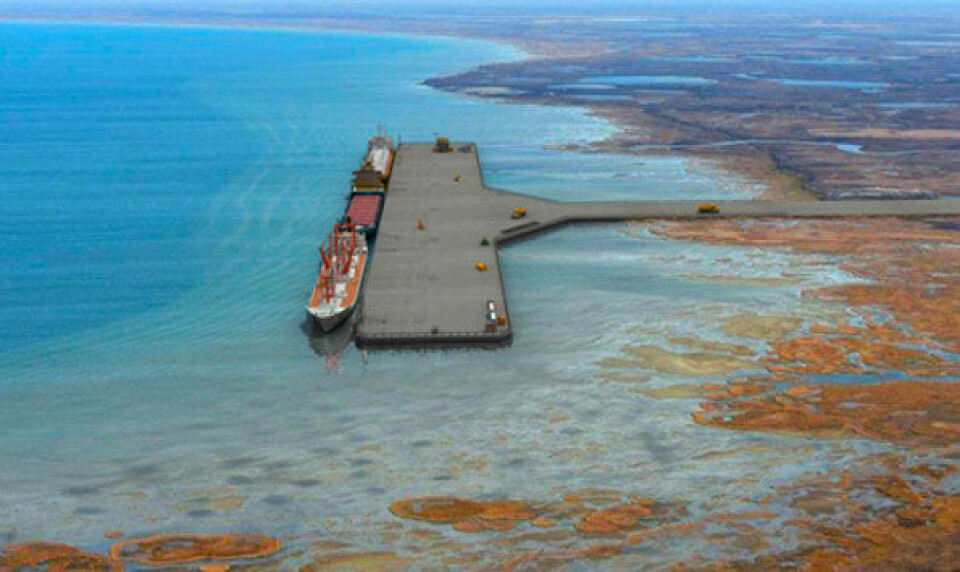
Companies build Arctic mega-projects, get billions in tax cuts
Natural gas company Novatek gets 40 billion rubles tax deductions for the building of a grand port terminal in the Gydan Peninsula. The deal is one of a series of tax benefits for the companies investing in Russia’s new Arctic projects.
p.p1 {margin: 0.0px 0.0px 0.0px 0.0px; line-height: 13.0px; font: 13.0px ‘Helvetica CY’; color: #1a1a1a; -webkit-text-stroke: #1a1a1a; background-color: #f5f5f5}p.p2 {margin: 0.0px 0.0px 0.0px 0.0px; line-height: 13.0px; font: 13.0px ‘Helvetica CY’; color: #1a1a1a; -webkit-text-stroke: #1a1a1a; background-color: #f5f5f5; min-height: 13.0px}p.p3 {margin: 0.0px 0.0px 0.0px 0.0px; font: 11.0px ‘Helvetica Neue’; color: #000000; -webkit-text-stroke: #1a1a1a}p.p4 {margin: 0.0px 0.0px 0.0px 0.0px; font: 11.0px ‘Helvetica Neue’; color: #000000; -webkit-text-stroke: #1a1a1a; min-height: 12.0px}span.s1 {font-kerning: none}span.s2 {font: 13.0px ‘Lucida Grande’; font-kerning: none}span.s3 {font: 11.0px ‘Helvetica Neue’; font-kerning: none; color: #95000e; background-color: transparent; -webkit-text-stroke: 0px #95000e}

The 40 billion rubles (€541 million) are needed for Novatek to be able to build the Utrenneye port in Gydan, newspaper RBC reports. The tax deductions are part of a deal with the regional Yamal-Nenets government.
Sources in the regional government confirm the agreement between the sides, RBC writes.
The Utrenneye terminal will serve Novatek’s next major natural gas project, the Arctic LNG 2. The project is ultimately to produce an annual 19,8 million tons of liquified natural gas.
Construction costs for the new infrastructure object is estimated to 144.3 billion rubles (€1.95 billion), of which the federal budget will cover 103.6 billion (€1.39 billion). It is to stand ready for operations in 2023.

The construction of the terminal was approved by a state commission in June this year. It will proceed in seven stages, the first three of which will include the building of state-owned infrastructure objects, including a major ship channel through the nearby shallow waters of the Ob Bay and the installment of navigational equipment.
Tax cuts in Murmansk
The Utrenneye terminal is not the first project where Novatek gets significant tax benefits. Also in Murmansk where the company is building a major plant for development of LNG platforms, generous tax cuts have been granted. Despite its major economic hardships, the regional Murmansk government early this year granted Novatek almost 12 billion rubles of tax breaks for the Belokamenka project.
The tax breaks will cover the period until 2023 and 2024, the regional government explained.
Novatek leader Leonid Mikhelson has earlier confirmed that his company is investing about 120 billion rubles (€1.62 billion) in Murmansk and that the first part of the Belokamenka plant will stand ready in course of 2019.
Tax cuts for LNG reloading
And Novatek wants more. According to newspaper Kommersant, the company has requested significant tax reduction for its upcoming ship-to-ship reloading of LNG in the waters outside the Kola Bay.
Starting from late 2019, Novatek’s fleet of ice-class LNG carriers will shuttle to the island of Kildin where the natural gas will be reloaded to conventional tankers. The tanker fleet that soon counts 15 vessels is registered abroad and consequently need to pay special fees.
In a letter to Prime Minister Dmitry Medvedev, Novatek owner Leonid Mikhelson requests 7.5 billion rubles (€10 million) of tax cuts for the reloading operations. Until July this year, the ship-to-ship reloading took place in Honningsvåg, Norway.
Big Oil
Similar requests for tax cuts are coming from the other major companies engaging in the Arctic, among them Rosneft.
Company leader Igor Sechin this summer made clear that he will need major tax cuts from government if his company is to be able to build a projected 600 km long pipeline to the Arctic coast. Behind the request stands also Also Neftegazholding, the company owned by former Rosneft-leader Eduard Khudainatov.
Rosneft has earlier made clear that considers to build a pipeline from the Vankor area in north Siberia to Dikson, the town located on the coast of the Taymyr Peninsula. The pipeline would be about 600 km long and have capacity to carry at least 25 million tons of oil per year.
The project could include Neftegazholding’s Payakha in Taymyr, the fields that are believed to hold as much as 1,2 billion tons of oil.
Support from government
The requests from the companies are likely to be approved. The federal government has clearly signaled that it is willing to grant major benefits to the companies that invest in the Arctic.
That willingness was confirmed by Deputy Prime Minister Yuri Trutnev during an Arctic conference in April this year.
According to Trutnev, the companies that invest in the Arctic could get their tax burden reduced with as much two thirds for the whole project period.
















